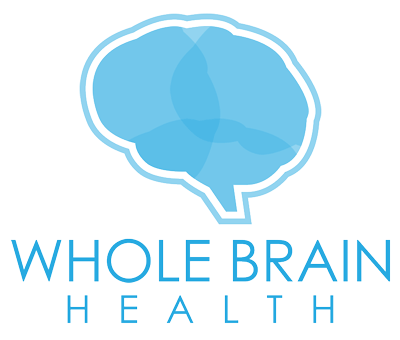“Let food be thy medicine, and medicine be thy food.” Hippocrates
This was said a thousand years ago, and it clearly encapsulates the preventive and therapeutic effect of food on our body.
Well who does not love food? As it is said some people eat to live while others live to eat. I am definitely in the latter category. But in my defense, I would say it is not such a bad thing because I am mindful of what I put in my body. I love food and love to talk about food. And since we are going to talk about food, let’s also fill our bellies with some laughter. As we already know how a burst of laughter can make our brain healthy. In case you don’t know, do read about it here.
What did the pecan say to the walnut?
We are friends because we are both nuts 🙂
Hahaha!!!
We know that a variety of foods are linked with our cardiovascular health and also helps in keeping our body in good physical condition. But not only that, a healthy diet rich in vitamins, minerals and nutrients can actually lower our risk of cognitive decline.
Our Brain uses 20 percent of the body’s calories, so we need to eat plenty of good food to maintain our brain health. And these healthy foods will protect us from inflammation, decreased blood flow, plaque formation, all of which can contribute to cognitive and memory problems. In fact a healthy diet can prevent and reverse the age-related cognitive deficits by lowering oxidative stress and inflammation.
In 2015 researchers created the MIND diet. This diet focuses on specific types of food that nourish and protect our brain i.e. green leafy vegetables, fruits, omega-3 fatty acid, lean protein and Vitamin C. Eating the brain healthy food can help in keeping clarity, metal sharpness and good memory.
Let’s look at the best brain food that people of all ages should include in their diet unless they are allergic to them.
Green leafy vegetables
Veggies like spinach, broccoli, roman lettuce, and kale contain nutrients like Vitamin K, beta carotene, folate and lutein which promotes healthy cell growth and prevents inflammation. According to the MIND diet, relish at least six servings of green leafy vegetables per week.
Broccoli is rich in a compound called glucosinolate which the body breaks down and produces isothiocyanates. Isothiocyanates may reduce the oxidative stress and lowers the risk of neurodegenerative diseases.
Whole grains
Whole grains such as oatmeal, brown rice, whole wheat, rye, millet ,buckwheat etc, not only help in keeping us full but are a rich source of fibre, iron, manganese, magnesium, phosphorus and B vitamins. They reduce the risk of cardiovascular diseases. A good cardiovascular health means good blood flow to all organs including our brain. B- Vitamins are essential for cognitive performance, physiological and neurological functioning.
Omega-3 fatty acid
Omega-3 fatty acids are essential for performing many functions in our body. They help in building the cell membrane throughout our body and brain. There is evidence that they have anti-inflammatory and antioxidant properties which means they help in building healthier brain cell and less deterioration in the brain. Studies about Omega-3 effect have shown that people perform better on cognitive tasks and omega-3 diet also reduce our age-related cognitive decline and improve other aspect of health. They can also help in lowering the blood pressure, reducing blood clotting, decrease our risk of stroke and improve brain cell transmission. Some of the sources are salmon, tuna, sardines, mackerel and trout. If seafood is not a part of your diet there are plant sources of omega 3 fatty acid. These include chia seeds, walnuts, hemp seeds, algal oil, flaxseeds, perilla oil and brussels sprouts.
Nuts and Seeds
There are many health benefits of eating nuts. Some studies have also shown that consuming nuts like walnut, hazelnut and almond can act as a preventive agent against cognitive decline and neurodegenerative disease like Alzheimer’s.
Walnut with their high concentration of DHA, a type of omega-3 fatty acids is shown to protect brain health in newborns, improve cognitive performance in adults, slow or prevent age-related cognitive decline.
Almonds, hazelnuts and sunflower seeds are high in vitamin E. Studies report that high plasma vitamin E levels are associated with better cognitive performances and due to its antioxidant properties it prevents or delays cognitive decline which has been tested clinically both in aging and Alzheimer’s Disease patients.
Berries
Strong scientific evidence suggests that eating berries like blueberries, blackberries and strawberries can prevent age-related neurodegenerative diseases and improve motor and cognitive functions.
Eating berries change the way neurons communicate in the brain. Which help in preventing inflammation, enhancing neuroplasticity and cell survival. Blueberries often referred to as brain berries high in antioxidants, helps in protection against memory impairment and lower dementia risk.
Tea or Coffee
Your daily dose of morning tea or coffee is doing more than just giving you the instant wake-up call. A 2018 study found that the caffeine in the coffee actually enhances the processing power of our brain. Caffeine increases the brain entropy, which is a complex and variable brain activity. When the entropy is high, the information processing capacity of the brain also increases. Coffee also has antioxidants which supports the healthy brain function.
But caffeine may also interfere with sleep and thus may not be recommended by doctors for everybody.
In addition to a healthy diet one also needs to do regular exercise, get enough sleep, manage stress and reduce alcohol consumption in order to have a healthy life and a happy brain. It is important to make these small changes and be consistent with them to make them our habit. Eat healthy and stay healthy.
